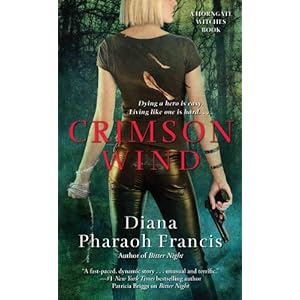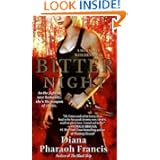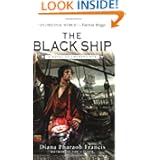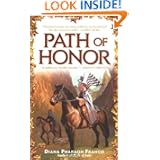
Food is fine, but great food is, well… Really fine. Imagine a job that takes you to the great restaurants of the world. Think about cooking great meals with the world’s finest chefs. Having the iconic Julia Childs as your mentor and master chef Todd English nurturing your culinary career. Add to this talent, your education and your awesome personality. Now everyone, including TV shows, are asking you to display your talent.
Annie B. Copps, Food Editor for Yankee Magazine, is my long time friend and guest today on The Novel Road. She is one of the finest people I’ve ever met. Her blog, Eating New England, will show you that I’m not the only who thinks the world of Annie.
A bit more about Annie from her blog:
 “Yankee food editor Annie B. Copps thinks about food more than most people. If she isn't growing, cooking, eating, or writing about it, she's talking about it. Not just how food tastes and what is the newest restaurant, recipe, or technique -- she's also entrenched in the politics of food and wine, as well as culinary history.
“Yankee food editor Annie B. Copps thinks about food more than most people. If she isn't growing, cooking, eating, or writing about it, she's talking about it. Not just how food tastes and what is the newest restaurant, recipe, or technique -- she's also entrenched in the politics of food and wine, as well as culinary history. New England foods are her bailiwick, but Annie is a restless soul who has traveled to the souks of the Middle East in search of za'atar, observed the tuna auction at the Tsukiji market in Tokyo, pressed olive oil in Sicily, and roasted a goat in Kwa-Zulu Natal South Africa. No matter where she is, she always manages to make a friend and eat (and drink) well.”
I’m beyond pleased to welcome my friend Annie B. Copps to The Novel Road…
Me: I HATE YOU! Not really, but living in New Mexico and reading about your travels and gourmet experiences causes, shall we say… just a touch of envy. Now you have a cookbook, in conjunction with Yankee Magazine, to go with your regular appearances on the Today Show. How did you go from your humble beginning as a simple country girl in the rustic wilds of a Southern California beach community to where you are now?
 |
| Annie B. Copps |
Annie: Sometimes I hate me, too. I just returned from a really great visit to Southern California, coming off a busy and beautiful holiday season and I am filled with boatloads of positive energy. I have a really good life. I don't make very much money, but I do get paid to eat and drink and that seems like a good deal right now.
And say, New Mexico has some great food... But to answer your question (be careful, I tend to be tangential--hereditary, I think... My Mom is nicknamed "non-sequester Nance." We don't use it very often because it is awkward. Mom is much quicker.), I have always loved food--cooking and eating. My family has always had great adventures, noodling around the country and around the world and for us, the food culture goes hand and hand with those experiences. My father spent time in Japan in the late 60's and he was fascinated by the food. We were living in Boston at the time and my parents had access to great ingredients, so we ate tempura and sushi at home sometimes. When the sushi wave hit, we were on it--like white on rice. (sorry!)
I worked in restaurants in college, the seminal experience was at Michela's, a restaurant in Cambridge, Massachusetts. Michela the owner is a real mentor and a visionary. Boston in the mid-80's, like a lot of places in America, had a good grip on red sauce based Italian (a lot of bastardized Sicilian cuisine), but she had gnocchi on the menu and Italian white wine and no meatballs. It was revolutionary. And Todd English was the chef. If you don't know who he is, Google him and smoke will come put of your computer he's such a celebrity now. Anyway, I stuck with Michela and Todd and they were both really open to letting me try on a lot of hats. Todd and his wife Olivia went on to open Olives. I hung around, then decided to go to culinary school--my original plan was to go to graduate school for a master's then PhD (in languages or comparative literature). I worked with Jasper White and a few others, then back to Todd. The story goes on and on, but I worked with Julia Child and almost finished my masters (in public health).
I found myself at Oldways Preservation and Chefs Collaborative, a food and nutrition think tank. We spent the bulk of our time in the Mediterranean, working with public health officials trying to preserve traditional food and agricultural ways. Our work is a major reason why you have more olive oil, nuts and avocados on the American table--but again I digress. I loved that, but found myself traveling more than even I cared to. Dumb luck got me a job at Boston magazine where I eventually became the food editor and then to Yankee where I have been for the last 5 years. The Today show is more dumb luck, but so far it has been SO fun and they are such an amazing team to work with--so professional and so kind.
I worked in restaurants in college, the seminal experience was at Michela's, a restaurant in Cambridge, Massachusetts. Michela the owner is a real mentor and a visionary. Boston in the mid-80's, like a lot of places in America, had a good grip on red sauce based Italian (a lot of bastardized Sicilian cuisine), but she had gnocchi on the menu and Italian white wine and no meatballs. It was revolutionary. And Todd English was the chef. If you don't know who he is, Google him and smoke will come put of your computer he's such a celebrity now. Anyway, I stuck with Michela and Todd and they were both really open to letting me try on a lot of hats. Todd and his wife Olivia went on to open Olives. I hung around, then decided to go to culinary school--my original plan was to go to graduate school for a master's then PhD (in languages or comparative literature). I worked with Jasper White and a few others, then back to Todd. The story goes on and on, but I worked with Julia Child and almost finished my masters (in public health).
I found myself at Oldways Preservation and Chefs Collaborative, a food and nutrition think tank. We spent the bulk of our time in the Mediterranean, working with public health officials trying to preserve traditional food and agricultural ways. Our work is a major reason why you have more olive oil, nuts and avocados on the American table--but again I digress. I loved that, but found myself traveling more than even I cared to. Dumb luck got me a job at Boston magazine where I eventually became the food editor and then to Yankee where I have been for the last 5 years. The Today show is more dumb luck, but so far it has been SO fun and they are such an amazing team to work with--so professional and so kind.
Today Show Video with Annie? go here...
Annie: I have been touched by rumor and innuendo before--I ain't scared of that! But if it were true, I'd be in sad shape. I really like wine, a lot. There would be measurable anger. If I were told I could never drink again, I think I am capable, but I would be really bummed out about it. Although, because alcohol IS such a part of my life and I am exposed to a lot of it, I take the month of August off from drinking--just to make sure I can do it and that the lines haven't become blurred as to where it fits into my life. So far it has been okay, I have survived wine festivals, birthdays, weddings and even family events. Though, I was in South Africa a few years ago, the last week of August and first week of September, I was pretty psyched that we were in wine country the second part of the trip.
Me: The best wine to use in cooking and why?
Annie: Hmmmm... it really depends on what you are cooking and what you really dig. A good rule of thumb though is cook with a wine you like to drink. Never ever use "cooking" wine, that stuff is doo-doo. Whatever wine you start with gets reduced and concentrated when you cook it, so whatever good or bad things about the wine will be more pronounced. It is cold here in Boston right now and I love braising this time of year (check out braising recipes at yankeemagazine.com -- was that a good segue or what?) and wine is great braising liquid. I tend to use Carlo Rossi "burgundy" for short ribs, beouf bourgogne, and lamb stew. It's drinkable and makes a great sauce.
Me: I make pasta that explodes. Pasta everywhere! What am I doing wrong?
Annie: Big Daddy, I think the issue is in your seal. I assume you are talking about stuffed pasta. If not, too much dy-no-mite, could be the issue. But seriously, if it is stuffed pasta, make sure you seal it with an egg wash (water and a beaten egg) and let it dry. If it is regular, then I suspect you are not kneading it enough (gluten, the protein in flour which gets activated by liquid, gives pasta structure and needs to be built up via kneading--longer answer is available). But keep making it!
 |
| Al Roker courtesy of themarthablog.com |
Me: Al Roker… If he became a fruitarian, could he wait for the fruit to fall from the tree?
Annie: LOL. Al Roker is, speaking of Big Daddy, so awesome. He'd have a little kid on his shoulders pulling the apples right off the branches.
Me: When you walk into a restaurant, just how freaked out do the owner’s of the restaurants become?
Me: When you walk into a restaurant, just how freaked out do the owner’s of the restaurants become?
Annie: I think they used to. I heard that when I was at Boston magazine, a few kitchens had photos of me (and other writers) in the kitchen so the servers knew who we were. I get treated well, with a lot of respect and I appreciate it. Fawning makes me nervous. I don't do too much critiquing anymore, but I do like to write about places where I have had a great experience. Additionall,y most people know what a big mouth I have and that I use social media.
Want to see Annie and Lobster? Go here - In this one Al Roker totally unraveled and lost his coconuts.
Me: Talk about your time with the great Julia Child.
Annie: So much to say. I miss her a lot. She was such an amazing and lovely person. I learned so much from her. She was a professional and diligent researcher. Very curious and funny. I worked for her in the production kitchen during the shooting of the PBS shows that were filmed at her home and then in her home office. She had a terrific full-time assistant, Stephanie Hersh, but I helped keep the machine running. Stephanie was a good friend to me, too. I loved that Julia was fully aware of how old she was, but she had no intention of not doing things because of her age. I could talk for days about her. What a big headed gift from God.
Me: I see an Annie B. Copps food show coming your way. If so, can I be a guest? We can make pasta…
Annie: Your mouth to God's ears. Yes... I think a p-asta show is a good idea--I'd love to be able to help people get over their kitchen hurdles with solid information. I kills me that kids aren't learning to cook anymore, because their parents only open cans or defrost. It really kills me. But I would love to do more TV, I get a real kick out of it and I think people like it--my own thing or a regular slot on the Today show would make me very happy and satisfed.
Me: This question courtesy of a fan with the screen name: Shelbottomus. “You never make Minnesota fine cuisine when you appear on the Today Show. Would you like my recipe for sautéed Lefse and Rakfisk?”
Annie: Shelbottomus Maximus? What an honor. I know, I know. I tend to do more New England-y food on the show as I come on as the Yankee magazine food editor, but if your fan would like to share with me some if her/his recipes, I'd be honored.
 |
| Norwegian food courtesy of picses.eu |
Me: Since this is a blog about writing and books, I guess I should ask you a question about the written word. When can we expect another great cookbook from you?
Annie: We'll do another Yankee "bookazine" soon--likely for this fall. I would love to write my own, though, perhaps a companion book for the TV show??
**************************************************
I'd like to thank Annie B. Copps for her time and friendship. Maybe I'll send her some pasta? Between Annie and the ATF, I'm sure they could find a way to cook it...
**************************************************
I'd like to thank Annie B. Copps for her time and friendship. Maybe I'll send her some pasta? Between Annie and the ATF, I'm sure they could find a way to cook it...

























